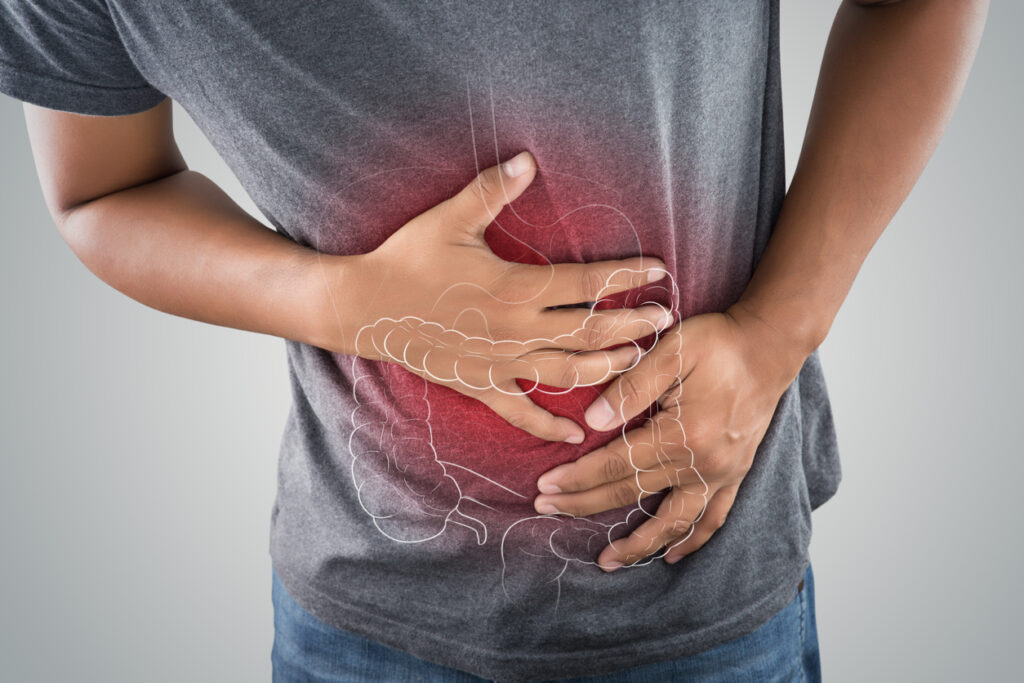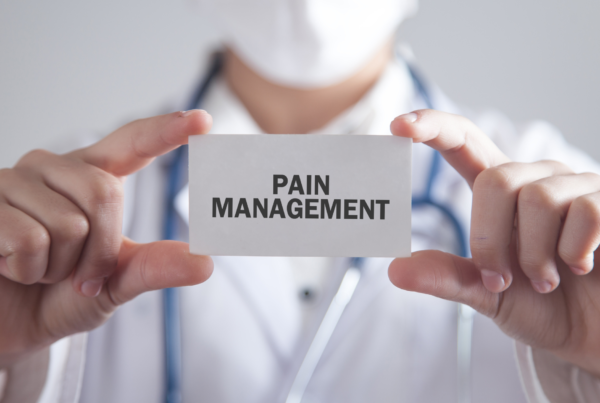
When you think about pain, your mind probably goes straight to obvious causes—a sprained ankle, a stiff neck, or the dull throb of a headache after a long day. But for many people living with chronic discomfort, the source of their pain isn’t an old injury or worn-out joints. It starts in a place they might never expect: deep within the gut.
Over the past decade, science has uncovered a fascinating and often overlooked link between gut health and pain. Conditions like Irritable Bowel Syndrome (IBS), leaky gut, and chronic inflammation are not just coexisting problems—they interact in a vicious cycle that amplifies symptoms across the entire body. This tangled relationship is mediated by a sophisticated communication system between the digestive tract and the nervous system, known as the gut-brain-pain axis.
In this article, we’ll explore how gut imbalances can create ripple effects that manifest as widespread pain, why these issues tend to reinforce each other, and, most importantly, how to break the cycle with holistic, practical strategies for healing from the inside out.
The Gut–Brain–Pain Axis: The Missing Link Between Gut Health and Pain
The gut is far more than a simple food-processing organ. It’s a dynamic ecosystem teeming with billions of bacteria, immune cells, and neurons—so much so that scientists often call it the “second brain.”
This second brain communicates constantly with your central nervous system via the gut-brain-pain axis, a two-way information highway made up of nerves (like the vagus nerve), hormones, and immune signals. When the gut’s delicate balance is disrupted—whether from poor diet, stress, infections, or imbalances in the microbiome (a condition called dysbiosis)—it sends out distress signals.
The brain, in turn, responds to these signals by heightening the body’s sensitivity to pain. Muscles may ache. Joints might feel stiff. Headaches become more frequent, and even mood disorders like anxiety or depression can creep in. This feedback loop means that gut problems are rarely confined to the digestive tract—they can drive pain throughout the entire body.
Simply put, gut health and pain are deeply intertwined. Strengthening one often leads to surprising relief in the other.
IBS and Gut Health: Why Irritable Bowel Syndrome Feels Like Full-Body Pain
Irritable Bowel Syndrome (IBS) is one of the most common gut disorders worldwide, yet many people don’t realize it could be behind their lingering aches and fatigue. Up to 15% of the global population is affected, though countless others remain undiagnosed or unaware of how their gut issues are linked to symptoms beyond digestion.
For people with IBS, the digestive tract becomes overly sensitive. Even normal processes like gentle intestinal stretching or mild bloating can feel intensely painful due to a phenomenon called visceral hypersensitivity. This heightened sensitivity doesn’t just affect digestion—it reverberates throughout the body.
Many IBS sufferers report muscle soreness, joint discomfort, headaches, and even fibromyalgia-like pain, as the nervous system becomes hyper-reactive to signals from the gut. Pelvic pain and urinary symptoms are also common, adding another layer of complexity. Addressing IBS isn’t just about calming the gut—it’s about easing the body’s overall pain response.
Leaky Gut and Chronic Pain: How a Damaged Gut Barrier Fuels Inflammation
In a healthy gut, the lining acts as a vigilant gatekeeper. It allows vital nutrients to pass into the bloodstream while keeping out harmful toxins, pathogens, and undigested food particles. But when that barrier becomes compromised—a condition commonly known as leaky gut—the system falters.
Tiny gaps open up between intestinal cells, allowing unwanted particles to “leak” into circulation. The immune system quickly recognizes these intruders as threats and launches a defense. But this immune response doesn’t come without a cost.
Over time, the body’s constant state of alert leads to chronic low-grade inflammation. Pain receptors throughout the body become more sensitive. Muscles may ache for no apparent reason, joints feel tender, and brain fog or fatigue often sets in. This explains why people with leaky gut often experience symptoms that seem far removed from digestion.
Healing the gut lining is a crucial step in breaking this cycle and restoring comfort.
Chronic Inflammation and Gut Health: A Hidden Driver of Pain
Inflammation is your body’s natural response to injury or infection—a short-term defense mechanism that helps you heal. But when inflammation lingers quietly for weeks, months, or even years, it becomes harmful instead of helpful.

Inflammation is your body’s natural response to injury or infection
This persistent, low-level inflammation—often fueled by a damaged gut, poor diet, and chronic stress—can wreak havoc on your nervous system. It disrupts normal pain signaling, amplifies aches and stiffness, and contributes to emotional symptoms like anxiety and depression.
If you’ve ever felt inexplicably achy, foggy, and emotionally drained, your gut might be sending inflammatory signals that heighten your pain threshold. Understanding this connection between chronic inflammation, gut health, and pain is the first step toward lasting relief.
The Vicious Cycle: How IBS, Leaky Gut, and Inflammation Reinforce Gut Health and Pain
These conditions rarely exist in isolation—they feed each other in a damaging loop:
- A weakened gut barrier allows toxins to escape into the bloodstream, triggering chronic inflammation.
- Inflammation sensitizes nerve pathways in the gut and elsewhere, worsening IBS symptoms.
- IBS flare-ups further stress the gut lining, deepening leaky gut and perpetuating the problem.
Breaking free requires a holistic approach that supports gut repair, calms inflammation, and restores balance to the gut-brain-pain axis.
Could Your Gut Be Behind Your Pain?
The signs aren’t always obvious. If you notice a combination of digestive troubles and systemic symptoms, your gut may be contributing to your discomfort:
- Abdominal cramping, bloating, or irregular bowel movements
- Unexplained muscle and joint pain
- Frequent headaches or migraines
- Persistent fatigue and brain fog
- Low mood, anxiety, or trouble sleeping
A Holistic Plan to Heal Gut Health and Pain
Healing your gut and easing chronic pain isn’t about quick fixes. It’s about building habits that nourish your body and restore balance over time.
1. Nourish with Gut-Friendly, Anti-Inflammatory Foods
Choose colorful vegetables, fiber-rich fruits, omega-3 fatty acids from fatty fish or flaxseeds, and fermented foods like kefir or sauerkraut to support your microbiome. Bone broth and collagen can help repair the gut lining. Meanwhile, cutting back on refined sugars, ultra-processed foods, and alcohol gives your gut the breathing room it needs to heal.
2. Repair the Gut Lining
Targeted nutrients like L-glutamine, zinc carnosine, and probiotics support barrier integrity and restore microbial balance. These are especially helpful for anyone with signs of leaky gut.
3. Move Your Body—Gently but Consistently
Gentle exercise like walking, yoga, or swimming supports gut motility, lowers stress hormones, and reduces inflammation. You don’t need intense workouts—consistency matters more than intensity.
4. Reset the Gut-Brain Axis with Stress Management
Chronic stress is a major disruptor of gut health. Mindfulness practices like deep breathing, meditation, or even spending time in nature can calm the nervous system and support gut repair.
5. Prioritize Restorative Sleep
Quality sleep allows your gut and nervous system to recover. Aim for 7–9 hours each night and create an evening routine that helps you unwind.
6. Seek Expert Guidance When Needed
If symptoms persist, consider working with a gastroenterologist or a functional medicine practitioner to tailor a plan for your unique needs.
Final Thoughts: Why Gut Health and Pain Go Hand-in-Hand
The link between gut health and pain reveals one powerful truth: healing is an inside-out process. By nurturing your gut, calming chronic inflammation, and restoring balance to the gut-brain axis, you can take significant steps toward freedom from pain.
Small, consistent changes may lead to profound improvements—not just in your digestion but across your entire body and mind.





